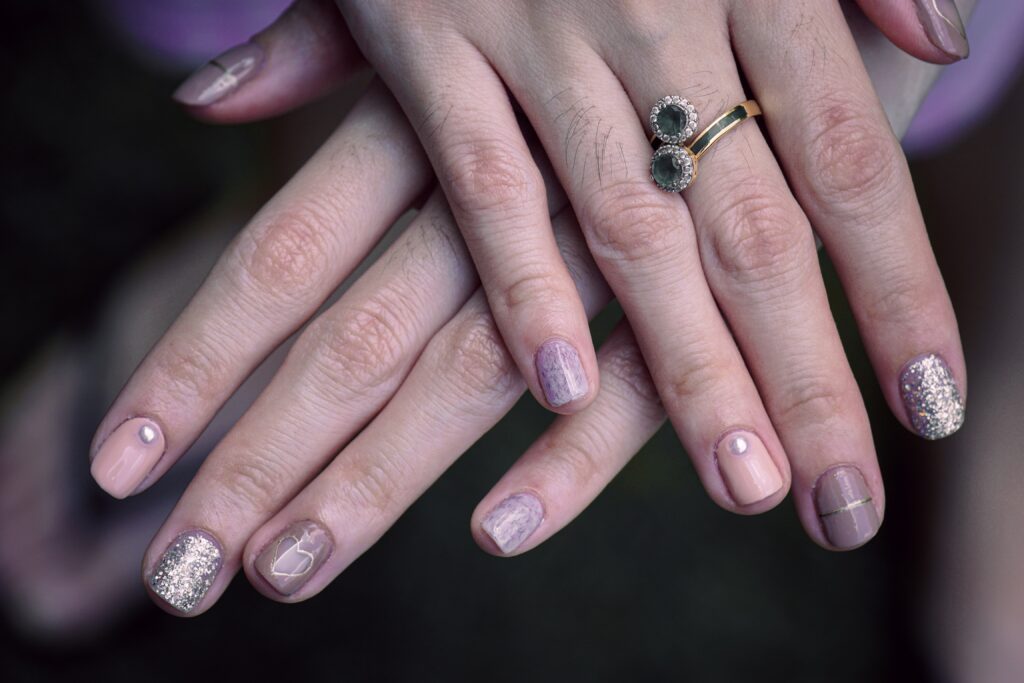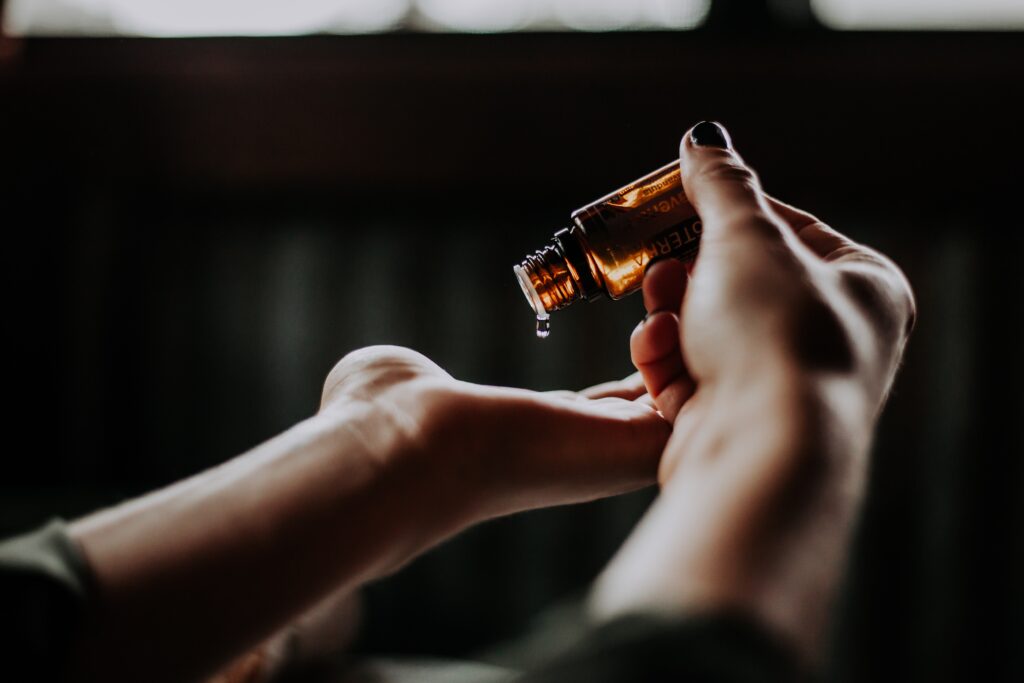Taking care of your nails is essential not only for their appearance but also for their strength and overall health. From choosing the right products to adopting simple self-care routines, there are various ways you can maintain healthy, strong nails. By understanding the importance of nail hygiene and following some practical tips, you’ll be well on your way to achieving gorgeous, resilient nails that make you feel confident and put-together. So let’s explore how you can nurture your nails and keep them in top-notch condition.
Proper Nail Care Regimen
Trimming and Filing Nails Regularly
One of the most important aspects of maintaining healthy nails is regular trimming and filing. By keeping your nails at an appropriate length, you can prevent them from becoming weak and breaking. To start, use a sharp nail clipper to trim your nails straight across, and then use a nail file to shape them to your desired style. Be sure to file in one direction to avoid causing damage to the nail. Regular trimming and filing should be done every one to two weeks, depending on the rate of your nail growth.
Moisturizing Nails and Cuticles
Proper moisture is essential for maintaining the health of your nails and cuticles. Dry nails can become brittle and prone to breakage, while dry cuticles can lead to painful hangnails. To moisturize your nails and cuticles, apply a nourishing cuticle oil or hand cream daily. Gently massage the oil or cream onto your nails and cuticles to allow the moisture to penetrate and nourish the tissues. Additionally, make it a habit to wear gloves when washing dishes or using harsh cleaning products to protect your nails and prevent them from drying out.
Avoiding Harsh Chemicals
Exposure to harsh chemicals can be detrimental to the health of your nails. Chemicals found in cleaning products, nail polish removers, and even certain cosmetics can strip the nails of their natural oils and moisture, leaving them weak and prone to damage. It is important to limit your exposure to these chemicals as much as possible. When using cleaning products, make sure to wear gloves to protect your nails. Additionally, opt for acetone-free nail polish removers, as acetone can be especially drying to the nails. Look for gentler alternatives that are enriched with moisturizing ingredients to keep your nails healthy.
Using Nail Strengthening Products
If you have weak or brittle nails, incorporating nail strengthening products into your nail care routine can be beneficial. Nail strengtheners are specially formulated to fortify and protect the nails, helping to prevent breakage and promote overall nail health. Look for products that contain ingredients such as keratin, biotin, or calcium, as these can help strengthen and nourish the nails. Apply the nail strengthener according to the instructions provided, typically as a base coat before applying nail polish. Regular use will help improve the strength and resilience of your nails over time.
Maintaining a Healthy Diet
Eating a Balanced Diet
Maintaining healthy nails starts from within, and a balanced diet is essential for providing the necessary nutrients for nail health. Make sure your diet includes a variety of fruits, vegetables, whole grains, lean proteins, and healthy fats. These foods provide the vitamins, minerals, and nutrients that contribute to the growth and strength of your nails. Aim to include foods rich in vitamins A, C, E, and Biotin, as these are particularly beneficial for nail health.
Ensuring Sufficient Vitamin Intake
In addition to eating a balanced diet, ensuring sufficient vitamin intake is crucial for healthy nails. A deficiency in certain vitamins, such as vitamin B7 (biotin), vitamin C, and vitamin E, can lead to weak and brittle nails. To promote nail health, consider incorporating supplementary vitamins into your routine. Consult with a healthcare professional to determine the appropriate dosage for your needs and follow their guidance for the best results. Remember that vitamins should complement a healthy diet, not replace it.
Hydrating Properly
Proper hydration is important not only for overall health but also for the health of your nails. When your body is well-hydrated, it promotes healthy nail growth and prevents dryness. Aim to drink at least eight glasses of water per day to help keep your body and nails properly hydrated. Additionally, consider using a moisturizing hand cream or cuticle oil to provide external hydration to your nails and cuticles. This combination of internal and external hydration will support the health and strength of your nails.

Protecting Nails from External Factors
Wearing Gloves for Household Chores
Household chores often involve exposure to water, cleaning products, and other substances that can be harsh on your nails. To protect your nails, it is important to wear gloves when engaging in these activities. Gloves act as a barrier, preventing direct contact between your nails and potentially damaging substances. Additionally, gloves provide protection against friction, reducing the risk of nail breakage. Remember to choose gloves that fit well and are comfortable to wear, as this will encourage consistent use.
Using Nail Protection Products
In addition to wearing gloves, using nail protection products can further safeguard your nails from external factors. Nail hardeners and protective top coats add an extra layer of strength to your nails, helping to prevent chips and breakage. These products create a barrier that shields your nails from daily wear and tear, extending the life of your manicure and promoting nail health. Apply a layer of nail hardener or protective top coat over your nail polish, following the instructions provided by the product manufacturer for best results.
Avoiding Constant Excessive Moisture
While it is important to keep your nails and cuticles moisturized, excessive moisture can have a negative impact on their health. Prolonged exposure to water, especially in instances such as prolonged swimming or doing the dishes without gloves, can cause the nails to become soft and weak. This makes them more susceptible to breakage and damage. Be mindful of limiting your exposure to excessive moisture and drying your nails thoroughly after water activities. Additionally, remember to apply a moisturizing cuticle oil or hand cream after drying to replenish lost moisture.
Protecting Nails from Extreme Temperatures
Extreme temperatures can also take a toll on the health and strength of your nails. Exposure to cold temperatures can lead to brittle nails, while exposure to hot temperatures can cause them to become dry and weak. To protect your nails, consider wearing gloves or using mittens in cold weather to keep them insulated. In hot weather, avoid exposing your nails to direct sun or excessive heat for prolonged periods. By being mindful of temperature extremes, you can maintain the health and strength of your nails.
Avoiding Damaging Practices
Avoiding Biting and Picking Nails
Biting or picking at your nails is a habit that can have detrimental effects on their health and appearance. Not only does it damage the nail bed, cuticles, and surrounding skin, but it can also introduce bacteria and germs, leading to infections. Breaking this habit is essential for maintaining healthy nails. One approach is to keep your nails neatly trimmed and filed to minimize the temptation to bite or pick. Additionally, you can try using a bitter-tasting nail polish or applying a clear nail strengthener to make your nails less appealing to bite.
Limiting Use of Acrylic and Gel Nails
While acrylic and gel nails can provide an instant boost in appearance, frequent use can have a negative impact on the overall health of your natural nails. These artificial enhancements can weaken the nail structure over time, making them more susceptible to breakage and damage. To avoid potential harm, it is recommended to limit the use of acrylic and gel nails and allow your natural nails to breathe and strengthen. If you do opt for these enhancements, make sure to follow proper application and removal techniques to minimize damage.
Being Gentle with Nails during Daily Activities
Daily activities such as typing, opening cans, and using tools can put strain on your nails if not done with care. To minimize the risk of damage, it is important to be gentle with your nails during these activities. Avoid using your nails as tools to pry or scrape objects, as this can cause them to crack or break. Instead, use appropriate tools and apply pressure with your fingertips or the pads of your fingers. By being mindful of your nails, you can prevent unnecessary damage and maintain their overall health and strength.

Promoting Nail Health with Home Remedies
Applying Coconut Oil
Coconut oil is a natural ingredient known for its moisturizing properties, and it can be used to promote nail health. Apply a small amount of coconut oil onto your nails and cuticles, gently massaging it in. The oil will penetrate the nail and cuticle, providing hydration and nourishment. Regular application of coconut oil can help prevent dryness and keep your nails strong and healthy.
Using Lemon Juice for Brightening
If you notice your nails becoming yellowed or stained, lemon juice can be used as a natural remedy to brighten them. Squeeze fresh lemon juice into a bowl and soak your nails in it for a few minutes. The acidity of the lemon juice will help lighten discoloration and remove stains. Remember to rinse your hands thoroughly after soaking and apply a moisturizing cream or cuticle oil afterward to prevent dryness.
Applying Olive Oil for Moisture
Olive oil is another household ingredient that can be used to moisturize and nourish your nails. Warm a small amount of olive oil and apply it to your nails and cuticles, gently massaging it in. The oil will provide deep hydration, promoting nail strength and flexibility. For added benefits, cover your hands with gloves or wrap them in a warm towel for 15 minutes to allow the oil to penetrate deeply. Afterward, rinse your hands and apply a moisturizing cream or cuticle oil.
Using Biotin Supplements
Biotin, also known as vitamin B7, is crucial for the health and strength of your nails. If you have weak or brittle nails, incorporating biotin supplements into your routine may be beneficial. Biotin supplements can help promote nail growth and enhance their overall quality. Consult with a healthcare professional to determine the appropriate dosage for your needs and follow their guidance for the best results. Remember that supplements should complement a healthy diet, not replace it.
Caring for Cuticles
Avoiding Cutting or Pushing Back Cuticles
Cuticles serve as a protective barrier for your nails, preventing infection and promoting healthy nail growth. It is important to avoid cutting or pushing back your cuticles, as this can cause damage and increase the risk of infection. Instead, focus on keeping your cuticles moisturized and gently pushing them back using a cuticle pusher or a soft towel after a warm soak. This will help maintain their natural shape and minimize the likelihood of complications.
Regularly Moisturizing Cuticles
Moisturizing your cuticles is an essential part of maintaining their health and promoting strong nails. Apply a nourishing cuticle oil or cream to your cuticles daily to keep them soft and hydrated. Gently massage the oil or cream into your cuticles to promote blood circulation, which can enhance nail growth. Regular moisturization will help prevent dryness and keep your cuticles looking healthy and well-maintained.
Using Cuticle Oil
Cuticle oil is specifically formulated to care for your cuticles, providing the necessary hydration and nourishment. It is typically enriched with a blend of essential oils, vitamins, and moisturizing agents that can help strengthen and protect your cuticles. Apply a small amount of cuticle oil to each cuticle and gently massage it in. Regular use of cuticle oil will keep your cuticles healthy and supple, allowing for healthier nail growth.

Protecting Nails from Infections
Keeping Nails Clean
Keeping your nails clean is an essential step in preventing infections. Make it a habit to wash your hands regularly and pay special attention to cleaning underneath your nails. Use a gentle nail brush to scrub away dirt and bacteria, being careful not to apply too much pressure that can damage the nail or cuticle. Dry your hands and nails thoroughly after washing to prevent the growth of harmful bacteria in moist environments.
Avoiding Sharing Nail Tools
Sharing nail tools, such as files, clippers, and cuticle pushers, can increase the risk of spreading infections. It is important to have your own set of nail tools and avoid sharing them with others. Sharing tools can transfer bacteria, fungi, and viruses from one person to another, potentially leading to nail infections. Remember to clean and sanitize your nail tools regularly to maintain their hygiene and prevent the spread of bacteria.
Proper Footwear and Nail Hygiene for Feet
Taking care of your toenails is just as important as caring for your fingernails. Proper footwear is essential to protect your toenails from damage and infections. Choose shoes that fit well and provide ample room for your toes to avoid pressure or friction that can cause nail problems. Additionally, maintain good nail hygiene for your feet by regularly trimming your toenails straight across and keeping them clean and dry. By taking these precautions, you can prevent common toenail issues such as ingrown nails or fungal infections.
Regularly Inspecting for Signs of Infection
Regularly inspecting your nails for signs of infection is an important preventive measure. Look out for symptoms such as redness, swelling, tenderness, pus, or changes in the color or texture of your nails. If you notice any abnormalities, it is important to seek medical attention promptly. Nail infections can worsen if left untreated and may require proper diagnosis and treatment by a healthcare professional.
Addressing Common Nail Issues
Dealing with Brittle Nails
Brittle nails are a common concern that can be addressed through proper nail care practices and lifestyle changes. Regularly moisturizing your nails and cuticles, avoiding excessive use of harsh chemicals, and maintaining a healthy diet can all contribute to stronger and less brittle nails. If the problem persists, consult with a healthcare professional who can recommend additional treatments or supplements to promote nail strength.
Treating Nail Fungus
Nail fungus is a common condition that can cause discoloration, thickening, and brittle nails. If you suspect a fungal infection, it is important to seek medical advice for proper diagnosis and treatment. Over-the-counter antifungal treatments may be effective for mild cases, but more severe infections may require prescription medication. Additionally, practicing good foot hygiene, avoiding walking barefoot in public areas, and regularly changing socks and shoes can help prevent fungal infections.
Handling Ingrown Toenails
Ingrown toenails occur when the edge of the nail grows into the surrounding skin instead of over it. This can lead to pain, swelling, and infection. To prevent ingrown toenails, trim your nails straight across and avoid rounding the corners. If you already have an ingrown toenail, it is best to seek professional care. A podiatrist can assess the severity of the situation and perform necessary treatments, such as partial or complete nail removal, to relieve the discomfort and prevent further complications.

Visiting a Professional
Regularly Scheduling Manicures and Pedicures
Regular visits to a professional nail technician can contribute to the overall health and appearance of your nails. Manicures and pedicures performed by trained professionals include nail trimming, shaping, cuticle care, and massage, which can effectively maintain the health and beauty of your nails. Additionally, professional nail technicians have access to a wide range of high-quality products and treatments that can address specific nail concerns. Consider scheduling regular appointments to ensure consistent care for your nails.
Seeking Help for Persistent Nail Issues
If you are experiencing persistent nail issues such as nail infections, chronic nail brittleness, or frequent ingrown toenails, it is important to seek professional help. A dermatologist or a podiatrist specializes in diagnosing and treating nail disorders and can offer targeted solutions for your specific needs. They can recommend medical treatments, prescribe medications, or perform procedures to address underlying issues and improve the health of your nails.
Considering Medical Treatments for Severe Nail Problems
In some cases, severe nail problems may require medical intervention to restore nail health. Medical treatments for severe nail problems may include laser therapy, oral medications, or surgical procedures. These treatments are typically recommended for conditions such as chronic nail infections, severe nail deformities, or persistent nail diseases. If you have severe nail problems that are impacting your daily life, consult with a healthcare professional to discuss the available medical treatment options.
Conclusion
Maintaining healthy, strong nails is achievable with a consistent nail care regimen and simple lifestyle choices. By following proper nail trimming and filing techniques, moisturizing nails and cuticles, avoiding harsh chemicals, protecting nails from external factors, and incorporating home remedies, you can improve the health and strength of your nails. Additionally, paying attention to your diet, avoiding damaging practices, caring for cuticles, protecting nails from infections, addressing common nail issues, and seeking professional help when needed are all important aspects of maintaining nail health. With these tips and practices, you can enjoy healthy, strong nails that enhance your overall well-being.






